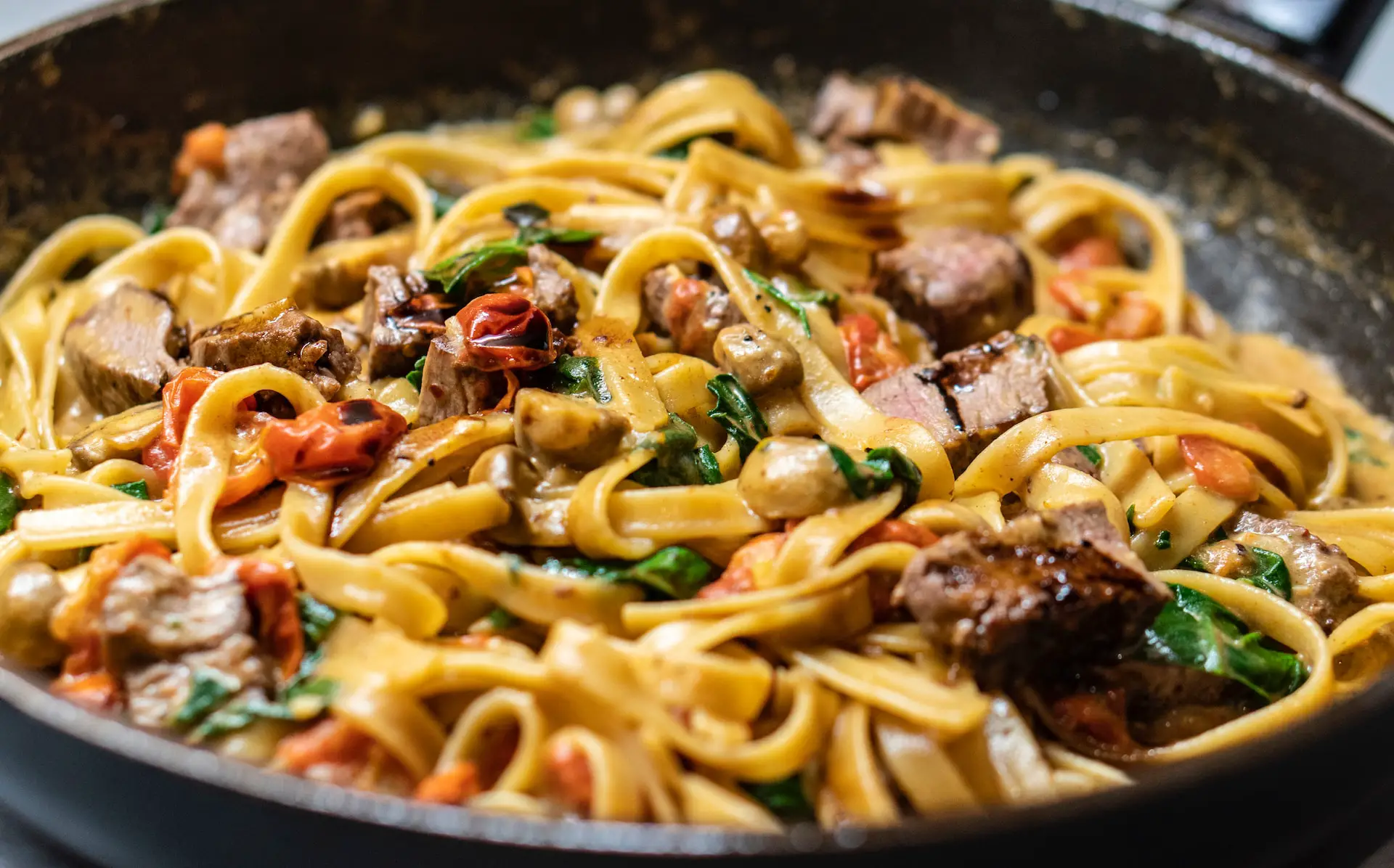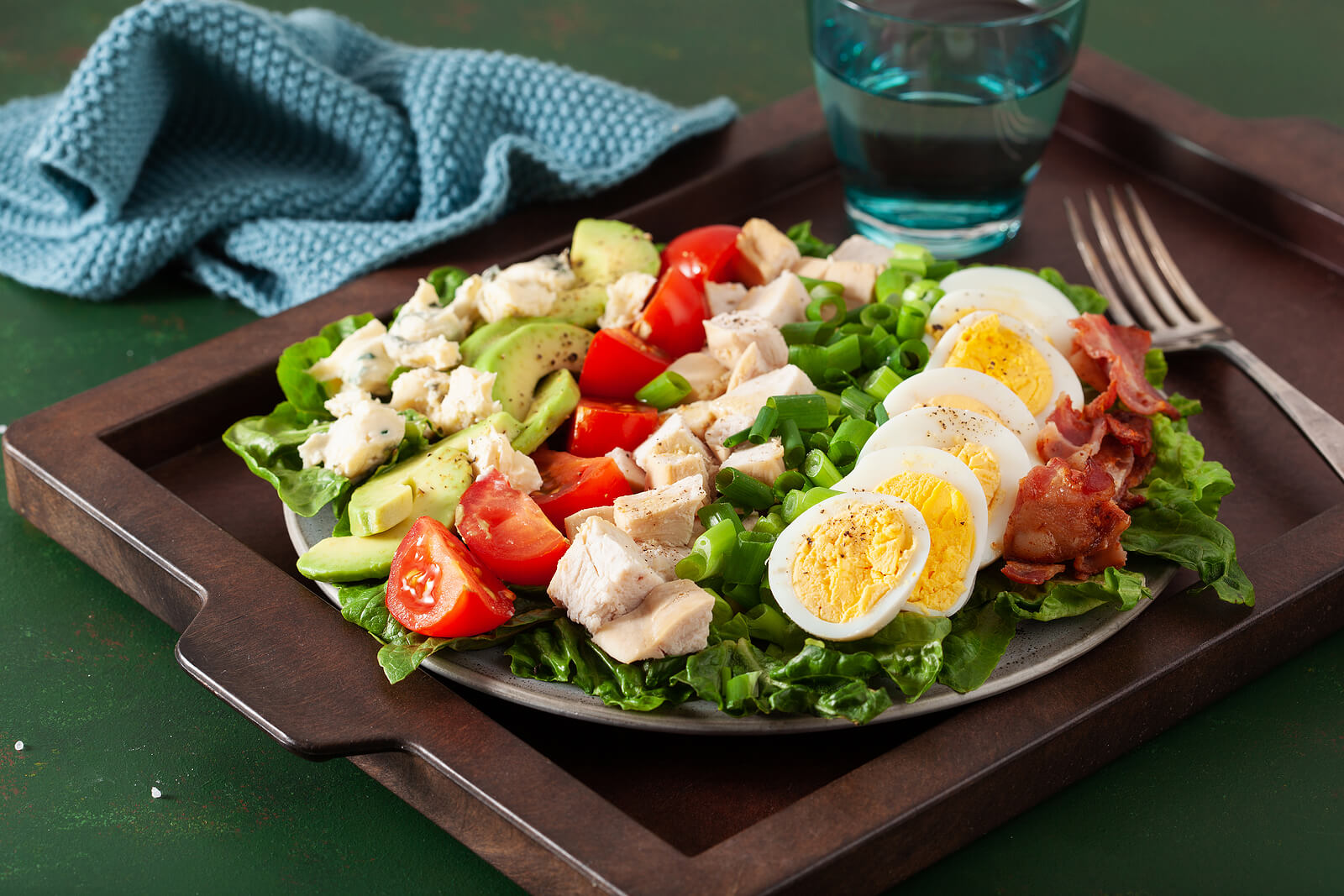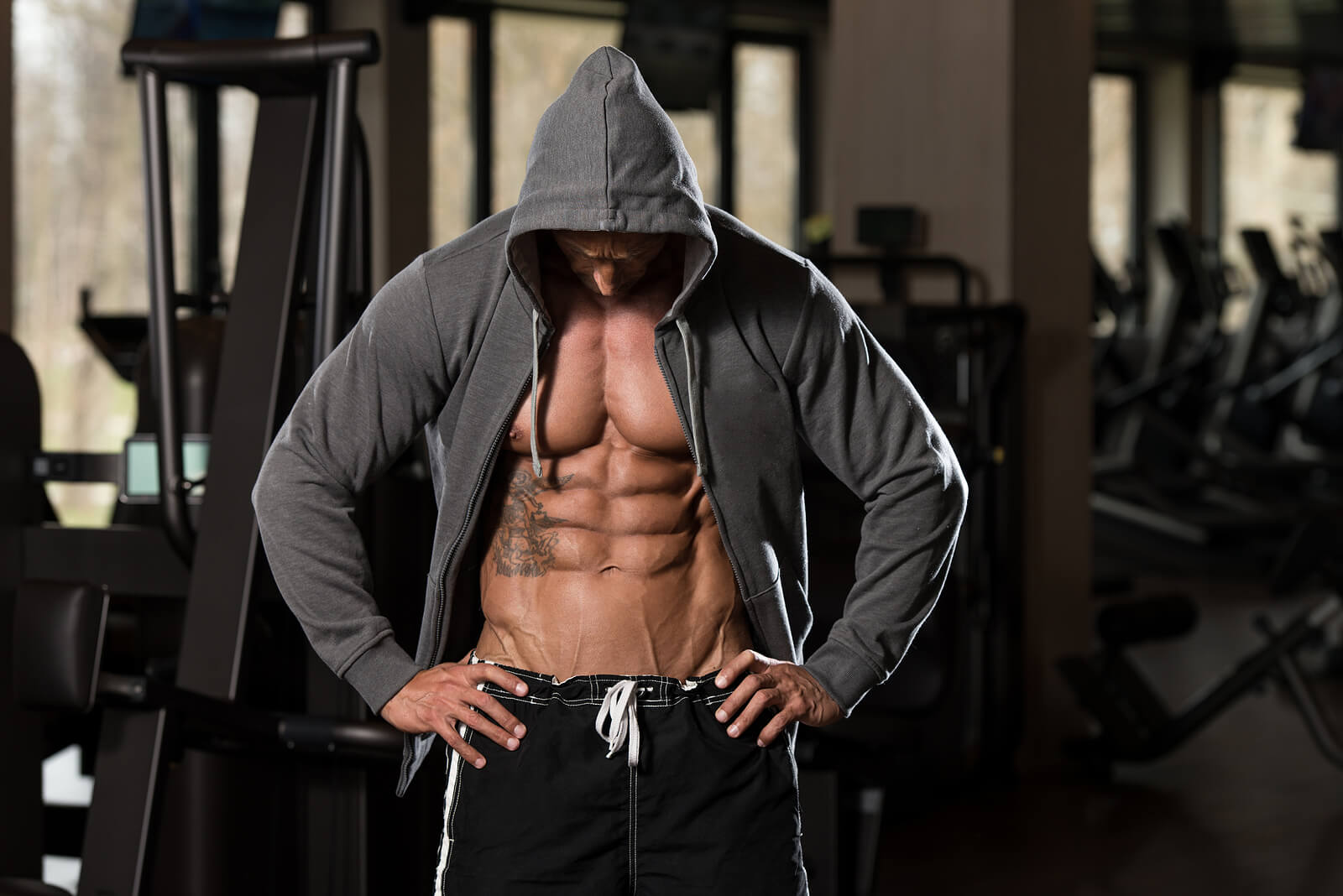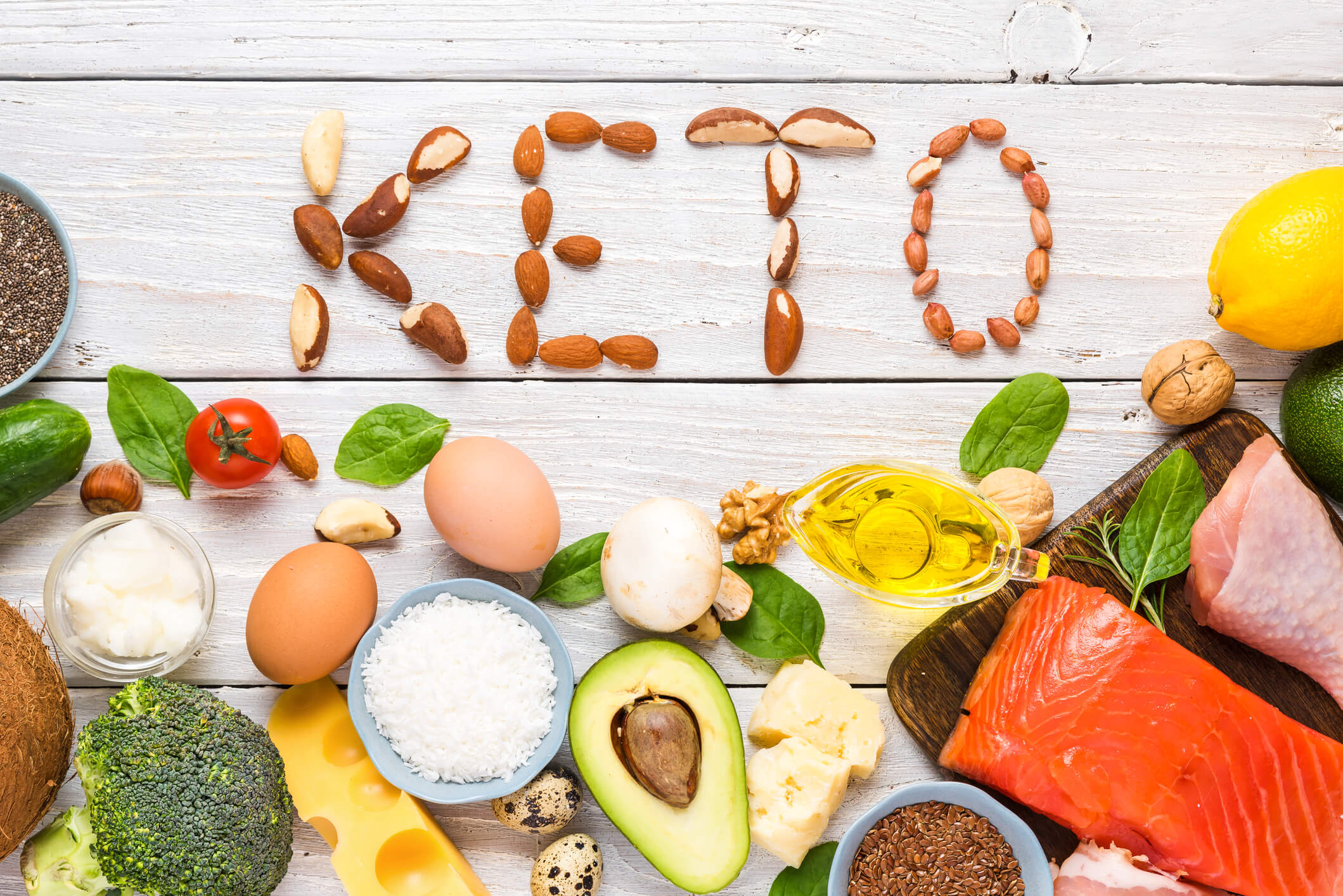If you’re looking to get abs, you probably already know that diet plays a crucial role in achieving your goal. But with so many different opinions and fad diets out there, it can be challenging to determine how many carbs you should be eating if you want abs.
Carbohydrates are a vital macronutrient that provides your body with energy to fuel your workouts and daily activities. However, eating too many carbs can lead to excess body fat, which can make it difficult to see your abs. So, how many carbs should you be eating if you want to achieve a lean, defined midsection? The answer depends on several factors, including your age, gender, activity level, and body composition.
In this article, we’ll take a closer look at how many carbs you should be eating if you want abs, and what types of carbs you should be focusing on. We’ll also provide some tips on how to adjust your carb intake based on your individual needs and goals, so you can achieve the lean, defined midsection you’ve been working towards.
Understanding Carbohydrates and Abs
If you’re looking to get abs, it’s important to understand the role of carbohydrates in your diet. Carbs are one of the three macronutrients, along with protein and fat, and they play a crucial role in providing energy to your body.
Role of Carbs in Energy Production
Carbohydrates are the primary source of energy for your body. When you eat carbs, your body breaks them down into glucose, which is then used by your cells to produce energy. This energy is used for everything from breathing to exercising.
Carbs and Body Fat
Many people believe that eating carbs will make you gain body fat, but this is not entirely true. While it’s true that excess carbs can contribute to weight gain, it’s not the carbs themselves that cause the weight gain. Rather, it’s the excess calories that you consume that lead to weight gain.
Carbs and Metabolism
Carbohydrates also play a crucial role in your metabolism. When you eat carbs, your body releases insulin, which helps to regulate your blood sugar levels. Insulin also helps your body to store energy in your muscles and liver for later use.
However, it’s important to note that not all carbs are created equal. Simple carbs, like those found in candy and soda, are quickly absorbed by your body and can cause spikes in your blood sugar levels. Complex carbs, like those found in whole grains and vegetables, are absorbed more slowly and can help to keep your blood sugar levels stable.
In conclusion, carbs are an important part of a healthy diet, especially if you’re looking to get abs. By choosing complex carbs and monitoring your overall calorie intake, you can ensure that you’re getting the energy you need to fuel your workouts while still maintaining a lean physique.
Determining Your Carb Intake
If you want to get abs, you need to watch what you eat. Specifically, you need to pay attention to your carbohydrate intake. But how many carbs should you eat if you want abs? The answer depends on a few factors, such as your age, activity level, and body weight. In this section, we’ll go over some methods for determining your carb intake.
Using a Carb Calculator
One way to determine your carb intake is to use a carb calculator. This tool takes into account your age, gender, weight, height, and activity level to give you an estimate of how many carbs you should eat per day. Some popular carb calculators include the ones from the American Diabetes Association and the Mayo Clinic.
Keep in mind that carb calculators are just estimates, and your actual carb needs may vary depending on your individual factors. It’s a good idea to use a carb calculator as a starting point and adjust your carb intake based on how your body responds.
Considerations for Age and Activity Level
Your age and activity level are important factors to consider when determining your carb intake. As you age, your body becomes less efficient at processing carbs, so you may need to reduce your carb intake to maintain a healthy weight. Additionally, if you’re very active, you may need to eat more carbs to fuel your workouts.
If you’re not sure how your age and activity level affect your carb needs, talk to a registered dietitian or your healthcare provider. They can help you determine the right amount of carbs for your body.
Carb Intake for Weight Loss
If you’re trying to lose weight, you’ll need to reduce your carb intake. This is because carbs are a major source of calories, and eating too many carbs can lead to weight gain. To lose weight, you’ll need to create a calorie deficit by eating fewer calories than you burn.
A good starting point for carb intake when trying to lose weight is around 100 grams per day. However, your actual carb needs may vary depending on your individual factors. It’s a good idea to work with a registered dietitian or your healthcare provider to determine the right amount of carbs for your weight loss goals.
Remember that losing weight takes time and effort. Be patient and consistent with your diet and exercise routine, and you’ll eventually see results.
In conclusion, determining your carb intake is an important part of getting abs. Use a carb calculator as a starting point, consider your age and activity level, and adjust your carb intake based on your individual needs. If you’re trying to lose weight, reduce your carb intake and create a calorie deficit. With time and effort, you can achieve your abs goals.
Balancing Your Diet
When it comes to getting abs, one of the most important things you need to do is balance your diet. This means getting the right amount of calories, macronutrients, and micronutrients to support your body’s needs. Here are some key factors to consider:
Caloric Balance
To lose fat and reveal your abs, you need to be in a caloric deficit. This means consuming fewer calories than your body burns each day. However, it’s important to make sure you’re not cutting calories too drastically, as this can lead to muscle loss and a slower metabolism.
To determine your daily calorie needs, you can use an online calculator or consult with a registered dietitian. Once you have your calorie goal, you can adjust your macronutrient intake accordingly.
Importance of Protein
Protein is essential for building and repairing muscle tissue, which is crucial for getting abs. Aim to consume at least 0.8 grams of protein per pound of body weight each day. Good sources of protein include lean meats, poultry, fish, eggs, dairy, legumes, and tofu.
Incorporating Fiber and Nutrients
Fiber and nutrients are also important for overall health and weight management. Aim to consume plenty of vegetables, fruits, whole grains, legumes, beans, nuts, seeds, and peas. These foods are rich in fiber, vitamins, and minerals that support your body’s functions and help keep you feeling full and satisfied.
When planning your diet, focus on nutrient-dense foods that provide a wide range of vitamins and minerals. Avoid processed and high-sugar foods that can spike your blood sugar and lead to cravings and overeating.
In summary, balancing your diet is crucial for getting abs. Focus on getting the right amount of calories, protein, fiber, and nutrients to support your body’s needs and promote fat loss. Consult with a registered dietitian for personalized guidance and support.
Choosing the Right Carbs
When it comes to getting abs, choosing the right carbs is crucial. Not all carbs are created equal, and some can hinder your progress. Here are some tips for choosing the right carbs to help you reach your goal.
Avoiding Sugars
One of the most important things you can do is avoid added sugars. These are sugars that are added to foods during processing. They provide empty calories and can cause your blood sugar to spike, leading to weight gain and other health problems. Instead, opt for natural sugars found in fruits and vegetables.
Complex Carbs for Energy
Complex carbs are a great source of energy and can help you power through your workouts. They are found in foods like brown rice, pasta, potatoes, sweet potatoes, oats, quinoa, and other whole grains. These carbs take longer to digest, providing a steady stream of energy throughout the day.
It’s important to note that not all carbs are bad. In fact, your body needs carbs to function properly. The key is to choose the right carbs in the right amounts. A good rule of thumb is to aim for 45-65% of your daily calories to come from carbs.
When it comes to carbs, it’s also important to pay attention to starch. Starchy foods like potatoes and white rice can cause your blood sugar to spike, leading to weight gain. Opt for whole grains instead, which are rich in fiber and can help keep you feeling full.
In summary, choosing the right carbs is essential if you want to get abs. Avoid added sugars and opt for complex carbs like brown rice, pasta, and quinoa. Pay attention to starch and aim for 45-65% of your daily calories to come from carbs. With the right approach, you can fuel your body and reach your fitness goals.
Exercise and Carbs
When it comes to getting abs, exercise is essential. But what about carbs? How many carbs should you eat if you want abs? The answer to this question depends on a few factors, including your body type, activity level, and fitness goals.
Fueling Workouts with Carbs
Carbohydrates are an important source of energy for your body, especially during exercise. When you exercise, your body burns through glycogen, which is stored in your muscles and liver. If you don’t have enough glycogen, your body will start breaking down muscle tissue for energy. To prevent this from happening, it’s important to fuel your body with carbs before and after your workouts.
How many carbs you need depends on the intensity and duration of your workout. For short, high-intensity workouts, you may not need as many carbs as you would for longer, lower-intensity workouts. As a general rule, aim for 30-60 grams of carbs before your workout and 30-60 grams after your workout.
Carbs and Muscle Recovery
Carbs are also important for muscle recovery. When you exercise, you cause small tears in your muscle fibers. Your body needs carbs to repair these tears and build new muscle tissue. Without enough carbs, your muscles won’t recover as quickly, and you may experience muscle soreness and fatigue.
To optimize muscle recovery, aim to eat a combination of carbs and protein after your workouts. This will help replenish your glycogen stores and provide your body with the building blocks it needs to repair and build muscle tissue.
In conclusion, carbs are an important part of any workout routine, especially if you want to build muscle and get abs. The key is to find the right balance of carbs based on your body type, activity level, and fitness goals. By fueling your workouts with carbs and eating a combination of carbs and protein after your workouts, you can optimize muscle recovery and achieve your fitness goals.
Healthy Fats and Proteins
Importance of Healthy Fats
When it comes to getting abs, many people focus on cutting out all types of fats from their diet. However, it’s important to remember that not all fats are bad for you. In fact, healthy fats are essential for maintaining good health and achieving a lean body.
Healthy fats, such as omega-3 fatty acids found in fatty fish like salmon, can actually help you lose weight and improve heart health. These fats can also help reduce inflammation in the body, which can lead to a variety of health problems.
Other sources of healthy fats include avocados, nuts, and seeds. These foods are also packed with other important nutrients that can help you achieve your fitness goals.
Protein Intake for Abs
Protein is another key nutrient that is essential for building lean muscle and achieving a toned body. When it comes to getting abs, protein is especially important because it helps to keep you feeling full and satisfied, which can help you avoid overeating and consuming too many calories.
To get the most benefit from protein, it’s important to consume it in the right amounts and from the right sources. Aim for at least 0.8 grams of protein per kilogram of body weight per day, and choose protein sources that are low in fat and calories, such as chicken, turkey, fish, and tofu.
Cheese is also a good source of protein, but it’s important to choose low-fat options to avoid consuming too many calories and unhealthy fats.
In conclusion, incorporating healthy fats and proteins into your diet is essential for achieving abs and maintaining good health. By choosing the right foods and consuming them in the right amounts, you can achieve your fitness goals and feel great.
Hydration and Sodium
Importance of Hydration
When it comes to achieving abs, hydration is key. Adequate hydration ensures that your body is functioning at its best, which can help with weight loss and muscle definition. In fact, studies have shown that even mild dehydration can impair athletic performance and hinder weight loss efforts. Therefore, it’s important to drink enough water throughout the day to maintain proper hydration levels.
The amount of water you need to drink depends on a variety of factors, such as your body weight, activity level, and climate. As a general rule of thumb, aim to drink at least 8 cups (64 ounces) of water per day. However, if you’re exercising or sweating heavily, you may need to drink more to replenish the fluids lost through sweat.
Role of Sodium
Sodium is an essential mineral that plays a key role in maintaining fluid balance in the body. It helps regulate the amount of water in and around your cells, which is important for proper hydration. However, consuming too much sodium can lead to high blood pressure, which can increase your risk of heart disease and other health problems.
To maintain a healthy balance of sodium in your diet, aim to consume no more than 2,300 milligrams of sodium per day. This can be achieved by limiting your intake of processed and packaged foods, which are often high in sodium. Instead, opt for fresh fruits and vegetables, lean proteins, and whole grains, which are naturally low in sodium.
In addition to limiting your sodium intake, it’s also important to pay attention to your hydration levels. Drinking enough water can help flush excess sodium out of your system, which can help lower your blood pressure and reduce your risk of heart disease.
Overall, staying hydrated and maintaining a healthy balance of sodium in your diet are important factors in achieving abs. By drinking enough water and limiting your sodium intake, you can help your body function at its best and support your weight loss and muscle definition goals.
Effects of a Low-Carb Diet
If you’re looking to get abs, you might be considering a low-carb diet. While a low-carb diet can help you lose weight, it’s important to understand the potential effects it can have on your body.
Potential Weight Gain
While a low-carb diet can help you lose weight, it’s important to note that it’s not a magic solution. In fact, if you’re not careful, you could end up gaining weight instead of losing it. This is because low-carb diets can be high in fat and calories, which can lead to weight gain if you’re not careful.
Impact on Body Composition
A low-carb diet can also have an impact on your body composition. When you cut carbs, your body will start to use fat for energy instead of glucose. This can lead to weight loss, but it can also lead to a loss of muscle mass. To prevent this, it’s important to make sure you’re getting enough protein in your diet.
Effects on Brain Function
Carbs are the primary source of energy for your brain, so cutting them out of your diet can have an impact on brain function. Some people report feeling foggy or tired when they first start a low-carb diet. However, this usually goes away after a few days. Additionally, some studies have shown that a low-carb diet can improve brain function in people with certain conditions, such as epilepsy.
Overall, a low-carb diet can be an effective way to lose weight and get abs. However, it’s important to understand the potential effects it can have on your body. Make sure you’re getting enough protein and other nutrients, and listen to your body if you start to feel tired or foggy. With the right approach, a low-carb diet can help you achieve your goals.
Maintaining Your Abs
Building and Maintaining Abs
If you want to build and maintain your abs, you need to focus on two things: exercise and nutrition. To build your abs, you need to do exercises that target your abdominal muscles like crunches, planks, and leg raises. You should also incorporate strength training exercises that target your entire body, like squats and deadlifts. This will help you build overall muscle mass, which will make your abs more defined.
In addition to exercise, you need to pay attention to your nutrition. To build and maintain your abs, you need to be in a calorie deficit, which means you need to burn more calories than you consume. You also need to make sure you’re getting enough protein, which is essential for building and repairing muscle. Aim for at least 1 gram of protein per pound of body weight per day.
When it comes to carbohydrates, the amount you should eat depends on your individual needs and goals. Carbohydrates are an important source of energy, and they can help fuel your workouts. However, if you’re trying to lose belly fat and reveal your abs, you may need to reduce your carbohydrate intake. Aim for complex carbohydrates like whole grains, fruits, and vegetables, and avoid processed and refined carbohydrates like white bread and sugary drinks.
Reducing Belly Fat
Even if you have strong abdominal muscles, you won’t be able to see them if they’re covered in a layer of belly fat. To reduce belly fat, you need to be in a calorie deficit and incorporate both cardio and strength training exercises into your routine. Cardio exercises like running, cycling, and swimming can help you burn calories and reduce overall body fat. Strength training exercises like squats, deadlifts, and lunges can help you build muscle and boost your metabolism.
In addition to exercise, you need to pay attention to your nutrition. To reduce belly fat, you need to be in a calorie deficit, which means you need to burn more calories than you consume. You also need to make sure you’re eating a healthy, balanced diet that includes plenty of fruits, vegetables, lean protein, and healthy fats. Avoid processed and refined foods, which are high in calories and can contribute to belly fat.
In conclusion, building and maintaining your abs requires a combination of exercise and nutrition. To build your abs, you need to do exercises that target your abdominal muscles and incorporate strength training exercises that target your entire body. To reduce belly fat and reveal your abs, you need to be in a calorie deficit and incorporate both cardio and strength training exercises into your routine. You also need to pay attention to your nutrition and eat a healthy, balanced diet that includes plenty of fruits, vegetables, lean protein, and healthy fats.






Leave a Reply